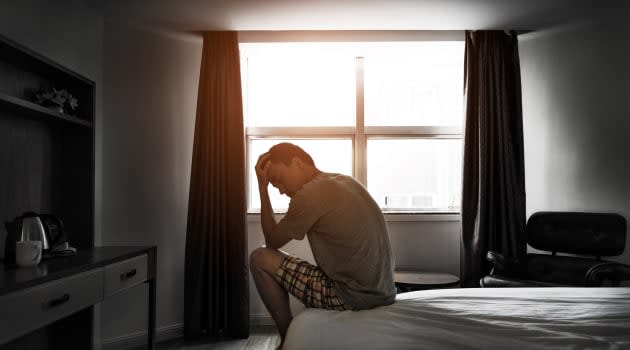58% Concerned Social Distancing May Impact Their Mental Health

The coronavirus pandemic is highlighting a need for mental health services that may be lacking, a new survey suggests.
According to a late March and early April survey from philanthropic organization Cohen Veterans Network, 58% of respondents said they were concerned about how social distancing may be impacting their mental health.
Yet many have been slow to access such services, and almost 6 in 10 have said they or a family member have had difficulty doing so.
The toll of coronavirus, social distancing
A majority of respondents (70%) said they were worried about their physical health as COVID-19 spreads across the country.
Many businesses have shut down, employees have been asked to work remotely and states have issued stay-at-home orders for residents who aren’t considered essential. The goal has been to promote social distancing, or staying away from others to reduce the risk of transmitting the virus.
Breaking down the mental health issues further (respondents could select more than one option):
64% of respondents reported feeling anxious
49% said they felt lonely or isolated
46% expressed that they had trouble sleeping
On top of that, 88% of respondents said the stresses associated with the coronavirus pandemic make mental health care more important, while 81% believe the pandemic will have a negative impact on the mental health of Americans overall.
Many are also struggling with financial woes. For example, 90% were worried about the economy, while 50% had work-related concerns.
Usage of mental health services still low
While consumers recognize the need for mental health services, the percentage of consumers who’ve tried to access mental health services has been relatively low, the survey suggests. Only 14% of households have accessed mental health care services during the pandemic.
Few are optimistic that the needed services will be available. In fact, 80% of respondents said they believe people who need mental health services won’t be able to get the help they need.
Of the respondents who had personally accessed mental health care services or whose families had tried to access them, 57% said the process was difficult.
One thing that might entice more consumers to seek mental health care services is telehealth capabilities. In fact, 71% of respondents said they’d be more likely to seek mental health care if they could utilize telehealth mental health care services.
If you’re concerned about your mental health during the COVID-19 crisis, don’t make assumptions that it’ll be difficult to get access to care. Rather, contact your medical provider to see if they can offer some help. Your employer may also be able to point you in the right direction, as some workplaces have added new benefits to help employees deal with the crisis.
Cohen Veterans Network’s methodology
Cohen Veterans Network, in conjunction with The Harris Poll, surveyed 2,026 U.S. adults between March 30 and April 1.
